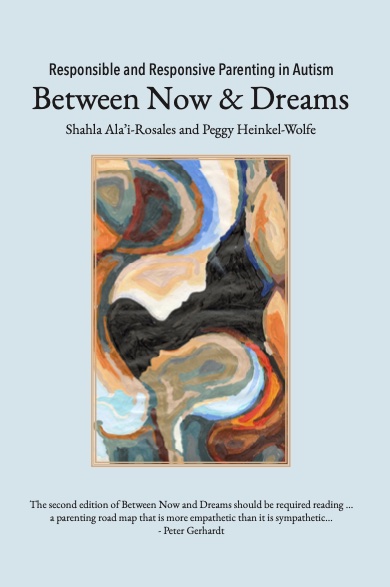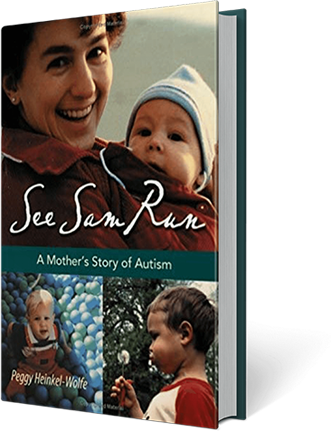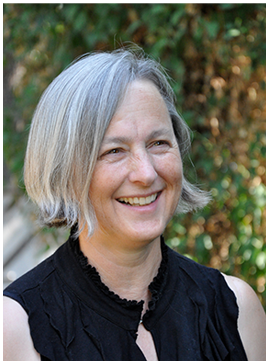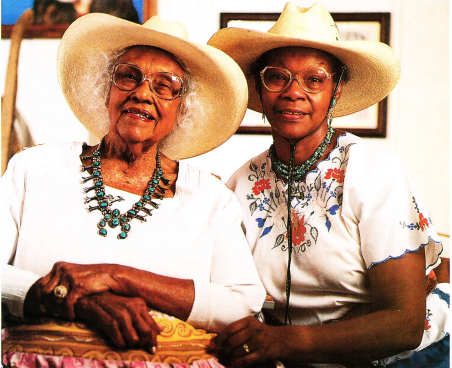Family Room
Exploring life, with an adult with autism.
Enlightenment, then laundry
The Zen Buddhists say that before enlightenment, you chop wood and carry water. Then after enlightenment, you chop wood and carry water. That idea stayed with me as I worked…
Word of the Year
A writing prompt arrived in my in-box a few days ago. It invited wordplay poetry on the Oxford English Dictionary’s Word-of-the-Year, “rage bait.” I joined the Modesto-Stanislaus Poetry Center several…
Overheard in the Wolfe House #331
Peggy: When you evaluate that way–stopping software updates at the level before AI–I respect that. Sam: That technology is sci-fi. It belongs when they can teleport and travel at lightspeed….
Talk to yourself, and tap the ‘wisdom of the inner crowd’
Some years ago, I took a call at my desk in the newsroom from a woman with a news tip. The details of the tip escape me now, but her…
Subscribe to the Family Room
Get the newsletter in your in-box
New! The second edition of Responsible & Responsive Parenting in Autism: Between Now and Dreams
With the second edition of Responsible and Responsive Parenting in Autism: Between Now and Dreams, Shahla and I are launching Love & Science Publishing and making our book more accessible to families and clinicians.
Parents of children with autism have so much to learn and to manage, it’s easy for them to feel alone and become emotionally drained. Our book helps caregivers make progress, whether with a young child or an adult. Responsible and Responsive Parenting in Autism received glowing reviews in two academic journals, with one calling it a "first-stop read" for parents, family members and caregivers.
The essence of any parenting journey relies on learning, connecting and loving. Each power informs and amplifies the other. Together, the three powers combine for meaningful, courageous parenting. Shahla is a professor and clinician who’s worked with hundreds of autism families. I'm a science writer and parent of an adult with autism. We teamed up to help caregivers tailor both scientific information and cultural wisdom to their family’s needs.
“In their heartfelt guide, Shahla Ala’i-Rosales and Peggy Heinkel-Wolfe deliver a transformative approach to learning, connecting, and loving as both parents and clinicians. Brimming with practical advice, personal anecdotes, and proven strategies, this book equips readers with the essential tools to forge deeper connections and cultivate a nurturing environment where everyone can thrive. A must-read for anyone devoted to understanding and loving a person with autism, this work is an indispensable resource for both personal and professional growth.” - Dr. Bridget Taylor, cofounder and CEO of Alpine Learning Group
“The second edition of Between Now and Dreams should be required reading for anyone who knows someone parenting an autistic child. In clear and concise prose, the authors provide a parenting road map that is more empathetic than it is sympathetic, is evidence-based, and is accessible.
By the way, it is not enough to buy this book. You need to buy a copy of this book to share with everyone in your circle who would benefit from this level of enlightenment.” - Dr. Peter Gerhardt, executive director of EPIC
Learn more about the new audiobook, ebook, paperback and hardcover versions at betweennowanddreams.com. Or click the link below and order now.

See Sam Run: A Mother’s Story of Autism
"This is a book written from the heart by a mother nearly driven to madness by her son's maniacal behavior. But she slowly learns how to pay attention to what makes Sam tick, what makes Sam run. And as her journey of discovering what ails Sam unfolds, many parents will find themselves hooked."
-- George Getschow, Writer-in-Residence, Mayborn Graduate
Institute of Journalism at the University of North Texas
"See Sam Run is well written and poignant as well as emotionally satisfying for the reader. The author's narrative voice is strong, intelligent and authentic. Her story is one that is important to get out."
-- Dianne Aprile, Spalding University
Thousands of children are diagnosed with autism each year. Professionals are scrambling to explain why the neurological condition, which can profoundly affect a person’s language and social development, is on the rise. Are we simply getting better at diagnosing autism, or is a modern health crisis unfolding before us?


Peggy Heinkel-Wolfe
An award-winning journalist, Peggy recently returned to California, where she shares a home with her adult son with autism.
The University of North Texas Press published her first book, See Sam Run, a mother’s story of autism, in 2008. The book’s manuscript won the Mayborn Prize for Literary Nonfiction in 2005. Since then, she has been exploring ideas in autism parenting and self-determination on these pages. She teamed up with friend and colleague Shahla Ala'i-Rosales, an autism professor and clinician, to write Responsible and Responsive Parenting in Autism: Between Now and Dreams. First published by Different Roads to Learning in 2022, the book is now in its second edition.
Peggy was among the first members of Families for Early Autism Treatment (FEAT) in California in the 1980s. Following the death of an autistic teenager shot by a Plano, Texas, police officer in the 1990s, she helped researchers at the University of North Texas find funding to develop one of the first police training programs on the topic. Peggy holds a master’s degree in journalism from the University of North Texas and a master’s degree in music performance from the Eastman School of Music.



